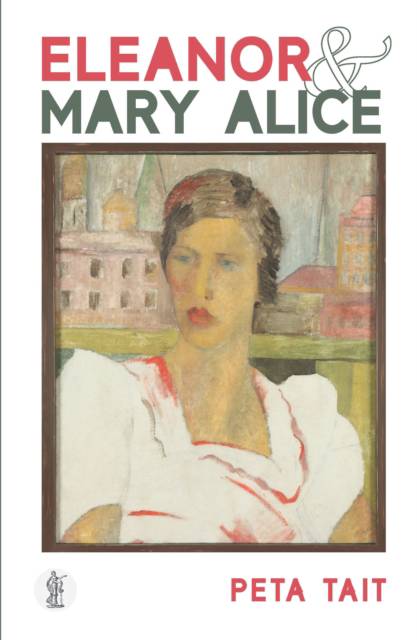
Bedankt voor het vertrouwen het afgelopen jaar! Om jou te bedanken bieden we GRATIS verzending (in België) aan op alles gedurende de hele maand januari.
- Afhalen na 1 uur in een winkel met voorraad
- In januari gratis thuislevering in België
- Ruim aanbod met 7 miljoen producten
Bedankt voor het vertrouwen het afgelopen jaar! Om jou te bedanken bieden we GRATIS verzending (in België) aan op alles gedurende de hele maand januari.
- Afhalen na 1 uur in een winkel met voorraad
- In januari gratis thuislevering in België
- Ruim aanbod met 7 miljoen producten
Zoeken
Omschrijving
Eleanor Roosevelt's epic flight across Japanese patrolled sea to Australia in 1943 during WWII stands out as heroic. Evading Winston Churchill's visit to the USA for his meetings with her husband, President Franklin D. Roosevelt, Eleanor confesses to Mary Alice Evatt that she is dreading the official receptions in Australia. Artist Mary Alice, who is married to Doc Herbert Evatt, Minister of External Affairs, tries to dissuade Eleanor from flying to the battlefront as she solicits Eleanor's assistance to guarantee Roosevelt's war support to Australia. In Paris in 1948, Mary Alice visits Picasso and Australian artist Moya Dyring, Eleanor chairs the committee developing the Universal Declaration of Human Rights at the United Nations, and Doc Evatt works hard as the first elected President of the General Assembly. Eleanor and Doc Evatt need to meet together but he is avoiding her. At the 70th anniversary of the Universal Declaration of Human Rights, Eleanor and Mary Alice implicitly reveals what these women contributed to political events as it highlights Mary Alice's importance to Australian modern art and the arts as a human right (Article 27). The Evatts and the Roosevelts had shared values including an understanding that the arts can advance freedom, equality and social justice.
Specificaties
Betrokkenen
- Auteur(s):
- Uitgeverij:
Inhoud
- Aantal bladzijden:
- 56
- Taal:
- Engels
Eigenschappen
- Productcode (EAN):
- 9781760622534
- Verschijningsdatum:
- 4/12/2018
- Uitvoering:
- Paperback
- Formaat:
- Trade paperback (VS)
- Afmetingen:
- 137 mm x 210 mm
- Gewicht:
- 72 g

Alleen bij Standaard Boekhandel
+ 46 punten op je klantenkaart van Standaard Boekhandel
Beoordelingen
We publiceren alleen reviews die voldoen aan de voorwaarden voor reviews. Bekijk onze voorwaarden voor reviews.









